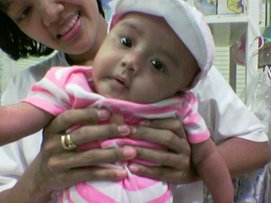AFTER teaching (asistancy) to the undergraduate student at Fakultas Ekonomika dan Bisnis Ugm, I decide to read a moment in Periplus at Bandara Adisutjipto in Yogyakarta. NOTE: Adi Sucipto we can write by Adi Sutjipto, or Adi Sutjipto International Airport. Fakultas Ekonomika dan Bisnis it was: Faculty of Economic, Universitas Gadjah Mada, Yogyakarta). I have found an interesting fiction book and I call it ‘priceless’. In Periplus bandara a lot of book labelled by that mark “just Rp 5000”. Its very cheap than the volatility of dollar versus Rupiahs nowdays. One US dolar could be Rp 9.100, in Bahasa we use to write Rp 9.100,00.
I choose the novel written by Yashusi Inoue “The Counterfeither an Other Stories” copywright 1965. The three stories assembled in that bookreveal another face of Yashusi Inoue –his great compassion for his fellow human being. The tragic Hosen harra in “The Counterfeiter” and pathetic Kagebayashi of “The Full Moon” are not particularly pleasant people by any standards, Oriental and Western, but the symphatethetic compassion with which Inoue handles them provides a real insight into the nature of the author.
It therefore seems rather surprising to find “Obasute” that Inoue harbors a fear that :misanthropic blood” possibly flows through his veins.
--
“What do you mean by ‘extraordinary’?”
“I guess it’s a funny thing to say but any how, even now I cant forget the way the old man looked that night”, said Tassan (“The Counterfeither”, page 63)
“The fall colors seem better than the moon, don’t you think?,” said my driver. Right then, I had had exactly the same thought. A corner of the plain was quickly becoming obscured, and just as I was thingking thaht I heard the sounds of an approaching shower, raindrops began to fall right where we were. We left the place. (page 96, Obasute).
There’s not time like the present to make this switch (page 104, The Full Moon).
You see, anything at all can happen (page 107)
--
Leon Picon who made the intorduction analyses about Inoue’s book say that “Human pathos and suffering, lonelines and isolation, fatalism, and Budhistic concepts of oredestination form doninant strands in the fabric of virtually all of the writing of Yasushi Inoues. His own separation from his parents when he was a child set the pattern for the basic framework of there moods, particularly that of lonelines.”
The Japanese character for “lonelines” means “orphan alone”. And Yasushi Inoue as a child was an orphan alone in almost every sense but the legal one. I agree with the Mainichi Daily News that this book is “Japanese in setting, but universal in symbol and appeal”
(Yashusi Inoue was born in 1907, and died 1991)
---
kang_aan@y----.c-- andono ahmad or yuniando@y----.c--






